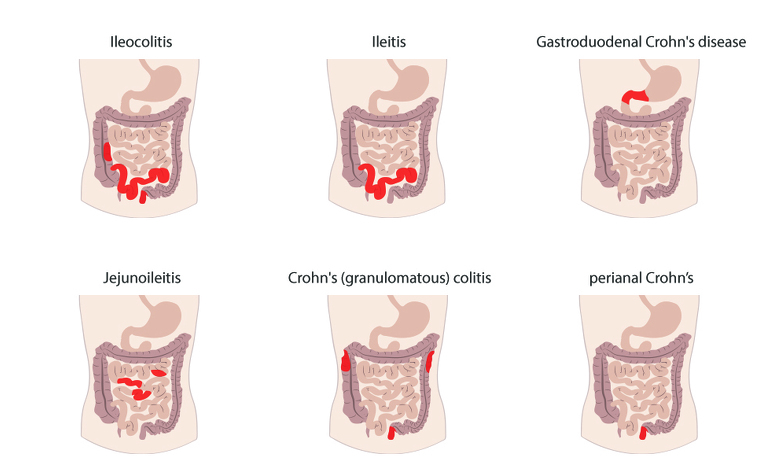This article explains what Crohn's disease is for children and young people...
Crohn’s disease is an illness that can affect the parts of your body that food and drink pass through, known as your gastrointestinal tract, or digestive system. It can cause any part of your digestive system to become sore (caused by something called inflammation). Over time these inflamed parts can become damaged.
Crohn’s disease may affect anywhere from your mouth to your anus (the hole in your bum that poo comes out of). In some people the Crohn’s disease only affects a small part of their digestive system, while in others it can affect large areas. It often appears in patches - so you may have some parts of your digestive system that are well, while other areas are inflamed. The inflammation can cause damage all the way through the intestine wall. This can sometimes lead to other problems.
Crohn’s disease is an autoimmune condition. This means that your immune system, which protects you from germs and illnesses, is attacking your body which causes inflammation. In the case of Crohn’s disease it is attacking your digestive system.
There are a few different types of Crohn’s disease. The type you have will depend on where in your digestive system you have inflammation. You can have more than one type of Crohn’s disease and the type you have can change over time.

If you have Crohn’s disease you may be sick (vomit), poo a lot (diarrhoea), have constipation (unable to poo), see blood and/or mucous in your poo, have a poor appetite or have stomach pains. It can also affect how quickly you grow, meaning you may be smaller than your friends.
Which symptoms you get will depend on which bits of your digestive system are inflamed (sore).
Crohn’s disease is a chronic condition and you will have it for the rest of your life. There is no cure but there are lots of different medicines which can be used to try to help you feel better. During your life you will likely experience times when you are well (remission) and times when you are unwell (flares) from your Crohn’s disease.
Crohn’s disease is part of a group of illnesses known as inflammatory bowel diseases (IBDs). There are a few different types of IBD but the two main ones are Crohn’s disease and ulcerative colitis.